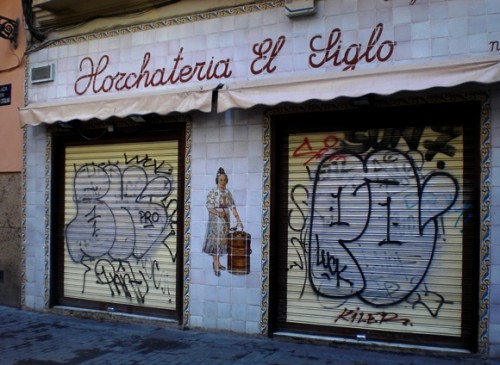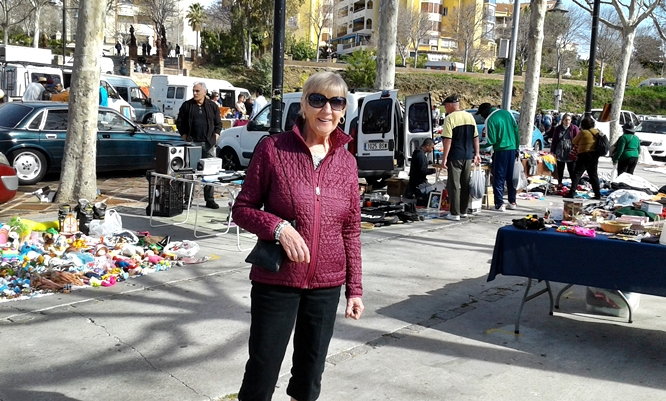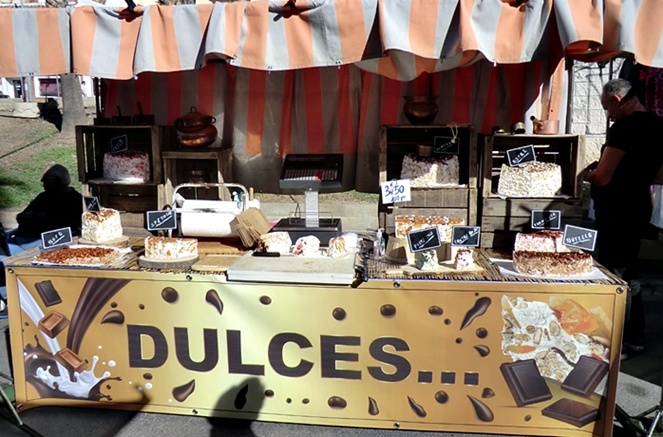Spain’s Daily Siesta Time Isn’t the Only Odd Thing You’ll Have to Get Used to While Shopping in Spain
Before I even moved to Spain, my family and I had been vacationing in the country since I was 10 years old.
That means, as somewhat of a professed shopaholic, I have probably spent months of my life in Spanish shops and on Spain’s markets. In those 30-plus years, some things about shopping in Spain have changed. Others have stayed the same.
If like me though, you love to shop and will be in Spain doing just that, you should know these important things about shopping in Spain before you set off.
That way there will be no annoying surprises, and you won’t arrive at a store to find it’s closed and won’t be open again for two more days.

Opening and Closing Times – One thing that takes some getting used to are Spanish opening and closing times, which do differ, depending on which region of Spain you are currently in, but fall within a certain range of time that is different to many other European countries.
Most shops in Spain open between 8:30-10am, relatively normal opening times compared to other countries. Closing times however are later than northern Western European countries, where closing time will usually be 6pm at the latest.
In Spain, closing time for many shops is 8pm, with supermarkets as well as hypermarkets like Carrefour, Eroski and Mercadona, usually staying open until 10pm.
But, where Spain differs even more than many other countries is in the middle of the afternoon when Spanish siesta rolls around.

Siesta in Spain – Siesta is the time of day in Spain where shops, offices, banks and most other businesses close and their staff has a long lunch or a short sleep. Siesta begins around 1pm (it’s different in different areas of Spain and can be as early as midday and as late as 2pm), so smaller shops will close then and reopen between 4-5pm. They then remain open until 8pm.
Supermarkets and hypermarkets nowadays however tend to stay open throughout the day, from 9am to 10pm as it wouldn’t be cost-effective to shut down such a large shopping venue for 3-4 hours every day.
If you are not used to siesta time in Spain and love to shop, it can seem like ‘wasted time’, with the whole afternoon stretching ahead of you and no idea how to fill it. Read a book, go for a walk, eat a long lunch, or sit in a sidewalk cafe with a cafe con leche. Eventually, you’ll get used to it and enjoy the excuse to relax.

Sunday is Closing Time – For most shops and even the supermarkets, except the aforementioned hypermarkets, Sunday is still a day of rest so they’ll be closed. That is why, if you need groceries, toiletries or any other necessary item, make sure you buy it on Saturday or you may have to do without on the sabbath.
Waiting in Line in Spain – One thing we noticed on our first trip to Spain 35 years ago and it has never changed even now that we live here, is the inability of Spaniards to stand in line.
If you are in a shop with a few customers waiting for service, don’t be surprised if you are constantly being pushed in front of or shoved to the back of the non-existent queue. Spaniards don’t mean to be rude. It is just the way it is.
In fact in Spain, getting served is ‘every man for himself’ so, politely but firmly push yourself forward and speak up. The Spaniards do, so you’ll have to as well.
Spain’s Relaxed Service – Another thing about shopping in Spain that some tourists find annoying is the relaxed attitude of Spaniards when it comes to serving customers.
When you walk into a shop, unlike in the US or England, where the shopkeeper will greet you and ask if they can help, in Spain you are often ignored. Plus, if the shopkeeper is in the middle of a conversation when you arrive, it’s unlikely they’ll finish that conversation earlier than planned just to serve you.
Wait patiently and calmly and they will get to you eventually and, yes, most of the time they will be incredibly friendly when they do. After all, it is only that Spanish Time is different than American Time or English Time and it has been like that for hundreds of years. So really is no point getting upset about it, as it’s you against an entire country.

Spanish Markets – Most towns in Spain have an outdoor town market, which happens once a week, opening at 8am and closing at 2pm. In many towns, these markets are enormous affairs, selling everything from fruit, veg and bread to clothes, shoes, household items, jewelry, linens and towels and more.
Prices too are often cheaper than in independent stores or department stores so, if you’re planning on a specific purchase, wait till the weekly market sets up to check prices there first.
Be aware too, if you have a Spanish friend, take them with you. You will get a cheaper price with a Spaniard bargaining for you (particularly if you don’t speak Spanish) than if you try to do it yourself.
Replacing An Item? Take It With You – A tip a wonderful Spanish friend gave us years ago and we have followed ever since is, if you are replacing something like a battery, a computer part or a specific accessory, don’t try to remember what you need take the old one with you instead. That way, you’ll have less problems with the language barrier and be absolutely sure you’ve ended up with the right one.
Shopping in Spain is fun and a great way to learn more about the culture. Just remember, accept the differences with a smile and try to get used to ‘Spanish Time’, and you will have the best shopping experience possible.




